Best
Beginner
Bassoon
Reeds
Bassoon
Reed playing across
the basic range
-
Overall: Carefully cut from select French cane using
sophisticated diamond-cutting equipment -
Best Feature: Designed for playing across the basic
range of the instrument -
TedScore™: 8/10
Best
Overall Bassoon
Reeds
-
Overall: Consistent, durable, and responsive due to its tip thickness, heart, and flexibility
-
Best Feature: First orchestral-grade synthetic double bassoon reed ever produced
-
TedScore™: 9/10
Best
Intermediate
Bassoon
Reeds
Bassoon
Reed reliable reeds for symphony orchestras
-
Overall: Carefully cut from high-quality French cane
-
Best Feature: Designed for playing in the
standard range of the instrument -
TedScore™: 8/10
Exploring good bassoon reeds is like finding the perfect pair of shoes—it’s a journey, but it’s worth it
I’ve tried many reeds from different brands, and let me tell you, a great reed makes a big difference!
A good reed can make playing the bassoon feel comfortable and always ready for performance, like chatting with an old friend.
Whether you’re a beginner, a keen learner, or an experienced player, finding the right reed really affects the sound you make.
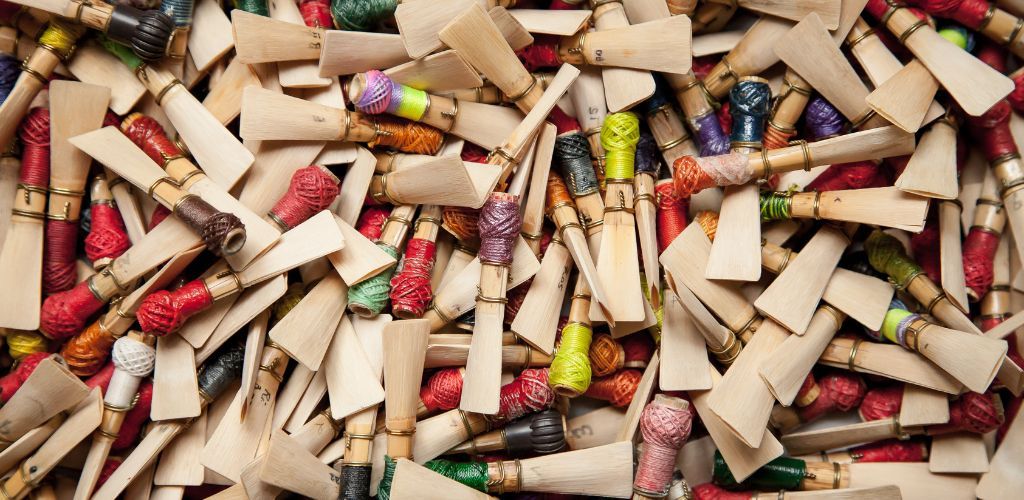
Here’s a tip: start with a medium-strength reed, as it’s versatile and can help you get the hang of things.
In this article, we’ll explore how to pick bassoon reeds that will help you play your very best. You won’t want to miss this, and by the end, you’ll be on your way to making music that touches the heart.
Say goodbye to average and hello to unforgettable melodies!
Selecting Suitable
Bassoon Reeds
When choosing the right bassoon reeds, it’s essential to consider the brand, reed hardness, and physical attributes and how these factors affect your embouchure and technique.
Here’s what I’ve learned about making those choices.
Reed Brands and Recommendations
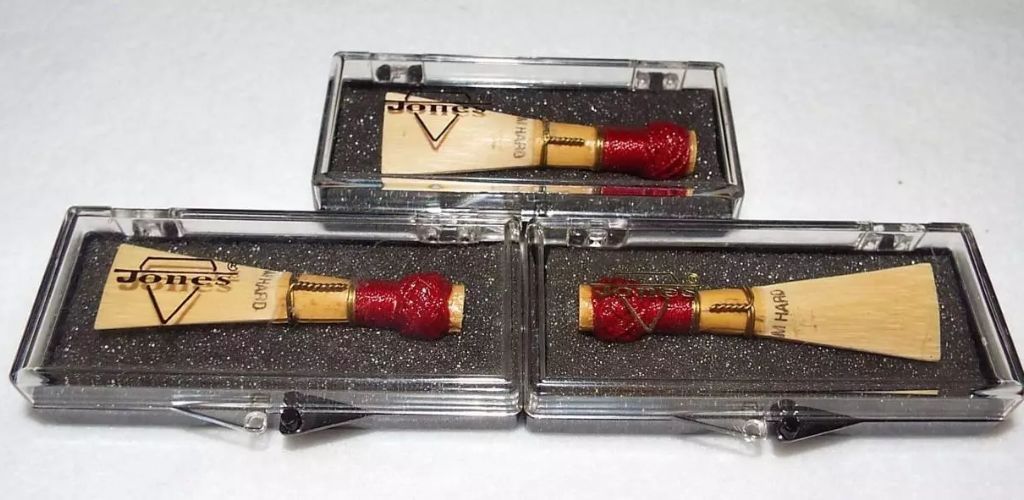
I’ve found that brands like Jones and Marlin Lesher offer reliable options for bassoon reeds. It is lauded for its accessibility and quality—a solid pick for both novices and professional players.
Jones 201MH Bassoon Reed
Jones 201MH Bassoon Reed
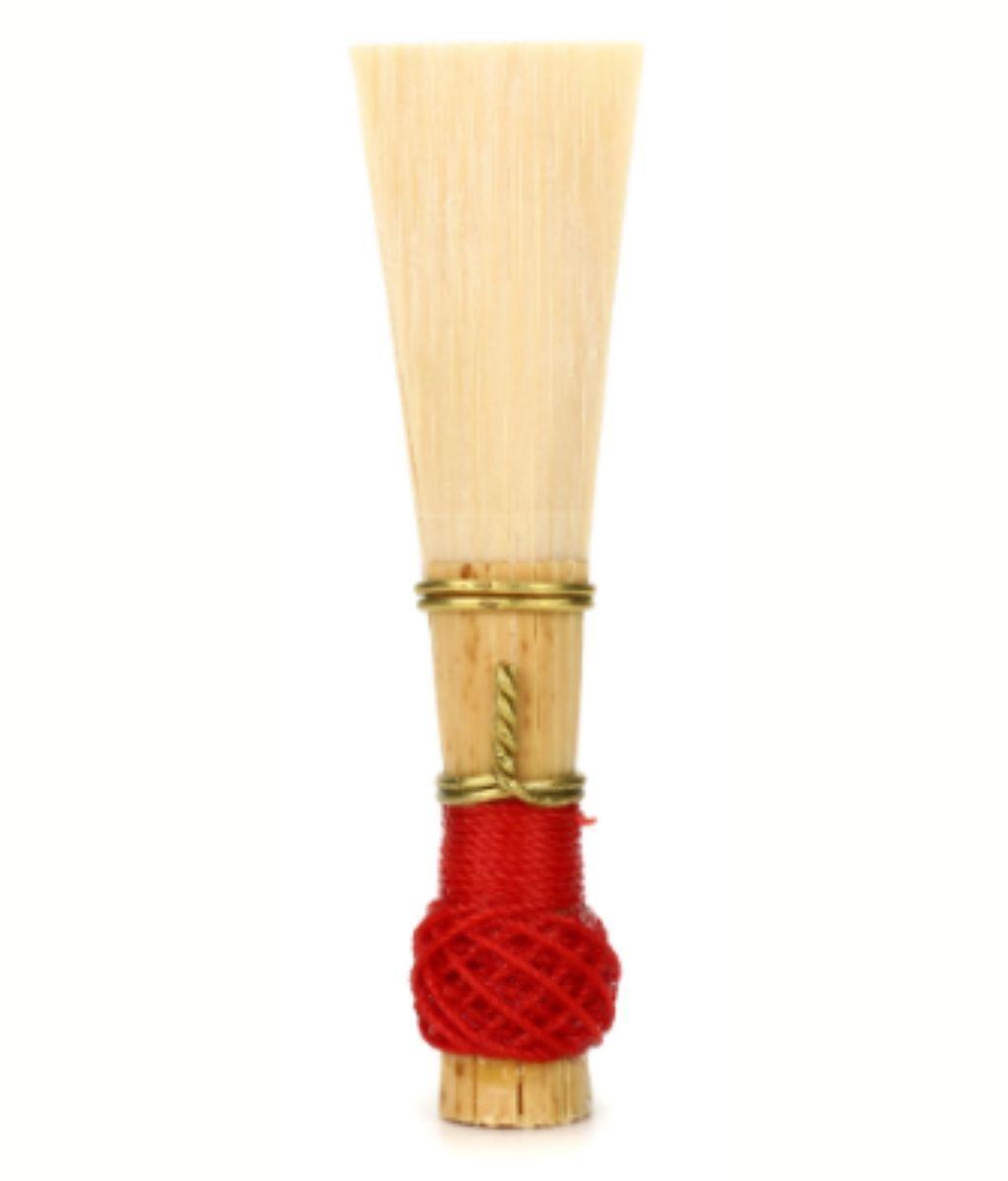
FEATURES: Carefully cut from select French cane using sophisticated diamond-cutting equipment.
OTHER INFO: Designed for playing across the basic range of the instrument.
- Tested by a Jones artist in residence to ensure more control.
- It may be too resistant for some players.
When you click ‘Check Price’, you’ll see there are loads of great places to buy this item. Our personal favorite is Sweetwater for the US, and Thomann and Gear4Music for the UK & Europe.
They are the largest music retailers, with excellent customer service, competitive prices, really fast shipping, and the longest guarantees.
The professional musician who wrote this article combined many things,
from the product build, manufacturer’s reputation through to feedback
from other users, to create our famous TedScore™.
Marlin Lesher Bassoon Reed
Marlin Lesher Bassoon Reed
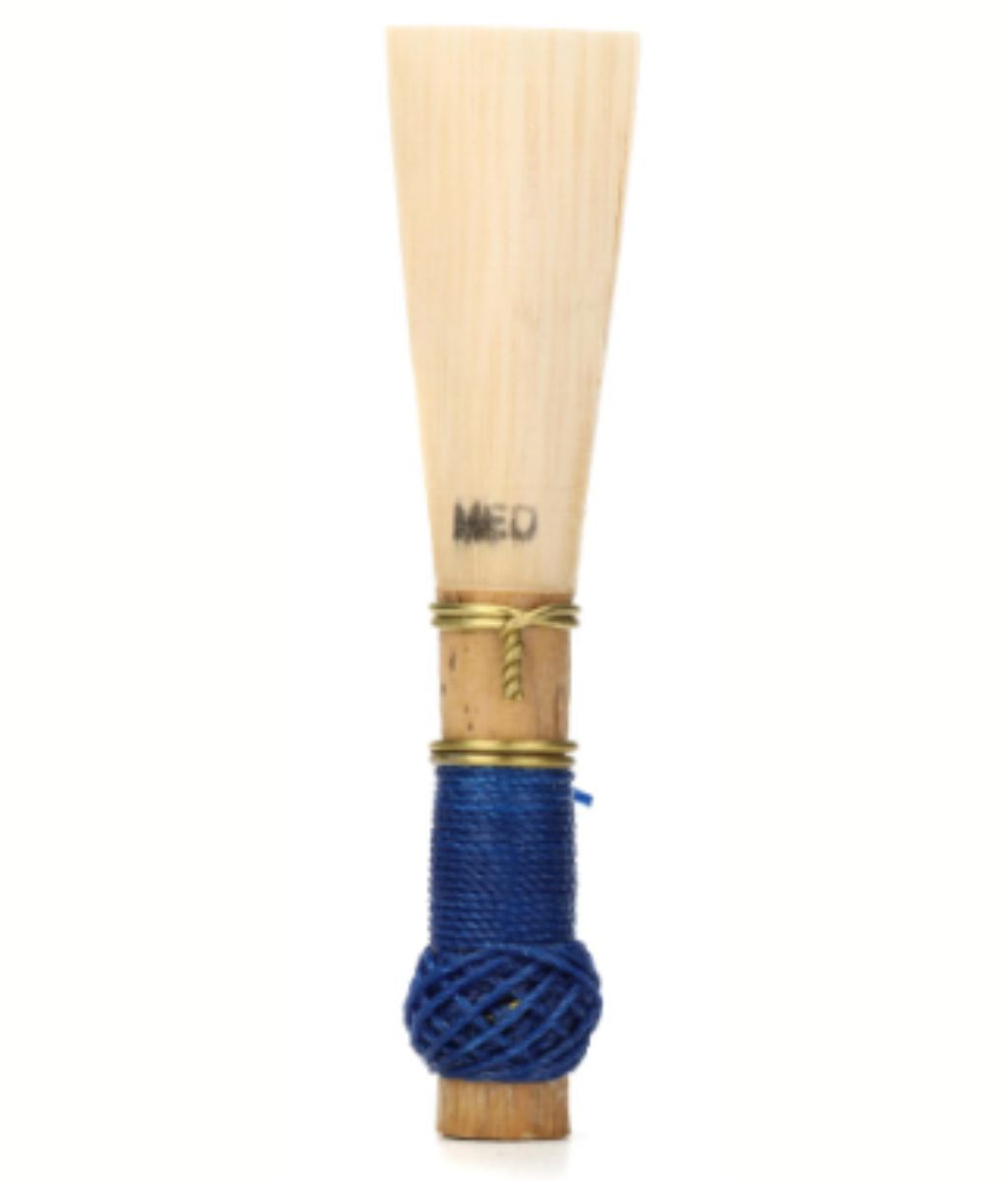
FEATURES: Carefully cut from high-quality French cane.
OTHER INFO: Designed for playing in the standard range of the instrument.
- Well-suited for both students and advancing players.
- Limited Customization.
When you click ‘Check Price’, you’ll see there are loads of great places to buy this item. Our personal favorite is Sweetwater for the US, and Thomann and Gear4Music for the UK & Europe.
They are the largest music retailers, with excellent customer service, competitive prices, really fast shipping, and the longest guarantees.
The professional musician who wrote this article combined many things,
from the product build, manufacturer’s reputation through to feedback
from other users, to create our famous TedScore™.
For those professional bassoon reed, higher-end brands might provide the bespoke refinement necessary for advanced techniques and repertoire.
Legere LGBSN-MH Bassoon Reed
Legere LGBSN-MH Bassoon Reed
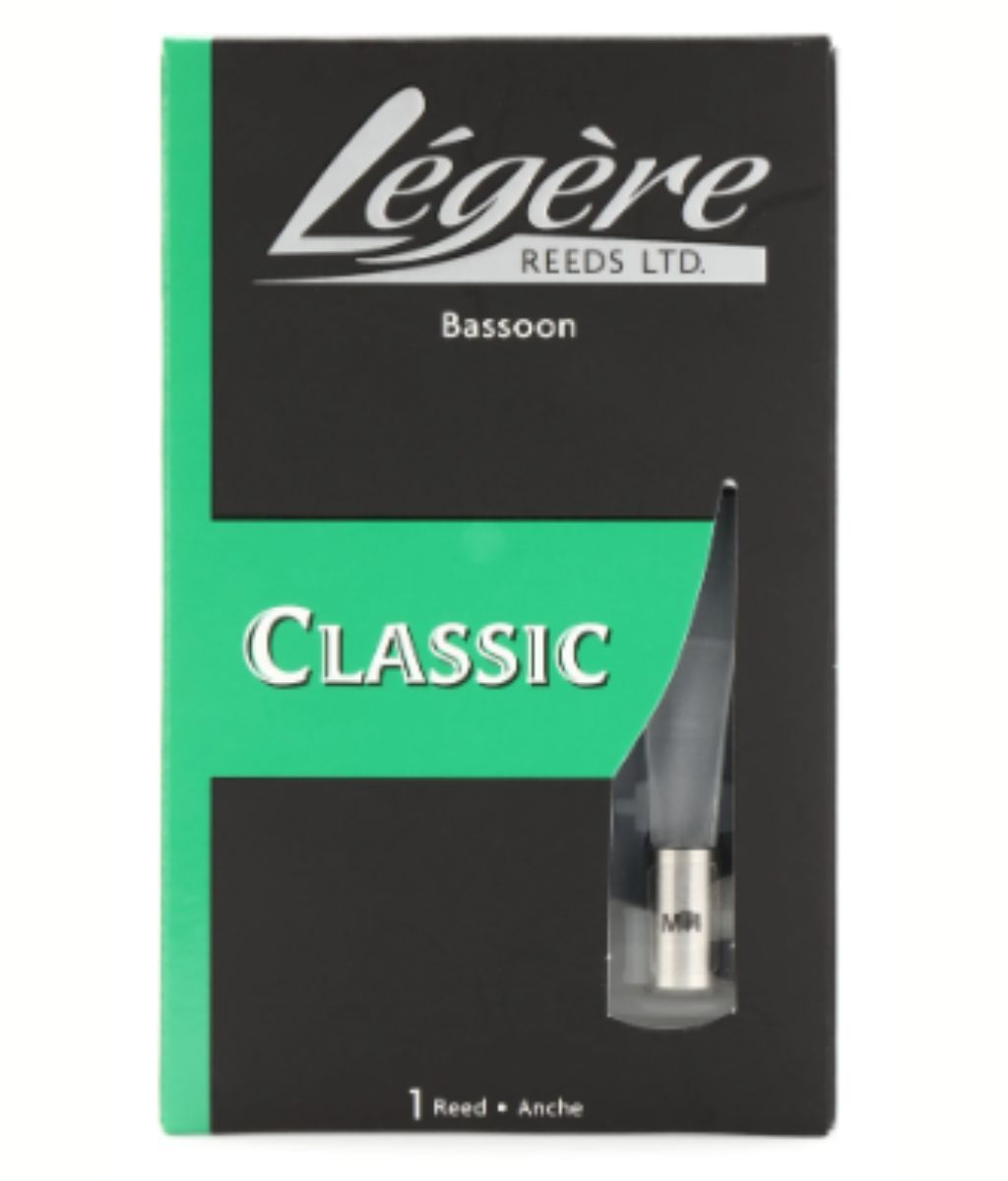
FEATURES: Consistent, durable, and responsive due to its tip thickness, heart, and flexibility.
OTHER INFO: First orchestral-grade synthetic double bassoon reed ever produced
- Allows you to move from the lower to higher registers easily.
- Higher price point.
When you click ‘Check Price’, you’ll see there are loads of great places to buy this item. Our personal favorite is Sweetwater for the US, and Thomann and Gear4Music for the UK & Europe.
They are the largest music retailers, with excellent customer service, competitive prices, really fast shipping, and the longest guarantees.
The professional musician who wrote this article combined many things,
from the product build, manufacturer’s reputation through to feedback
from other users, to create our famous TedScore™.
Reed's Hardness and
Player Level
My experience has taught me that the hardness of the reed can significantly affect your playing experience. Beginners should consider medium soft reeds, as they require less air and offer greater ease of play.
Professionals and advanced students tend to opt for medium hard or hard reeds, banking on the nuanced control and richer sound quality they enable.
However, they do demand more robust embouchure and diaphragm support.
Physical Aspects of Reeds
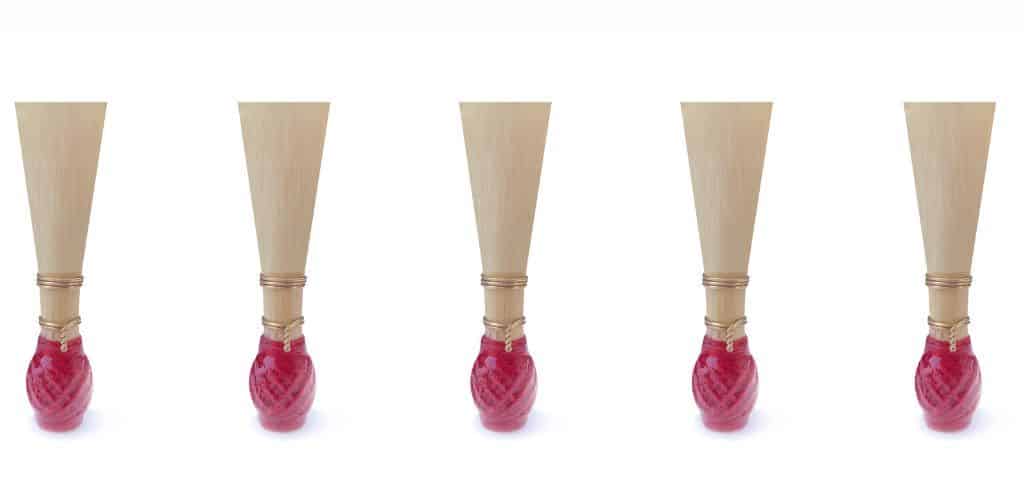
Speaking about the physicality of reeds, length, and tip opening is crucial.
Reeds averaging 54 mm, like Légère, offer reliable stability and intonation.
The tip’s width sits comfortably between 14.7-15.0 mm, which strikes the right balance between tone and response, whether you’re playing legato or staccato passages.
Importance of Embouchure and Technique

Your embouchure shapes the sound and is as crucial as the reed itself. Proper reed selection complements your embouchure, improving intonation, articulation, and range flexibility.
A good reed supports your technique, allowing for a responsive playing experience. It helps the color and shape of your sound – something my teacher always emphasized.
Maintenance and Adjustments
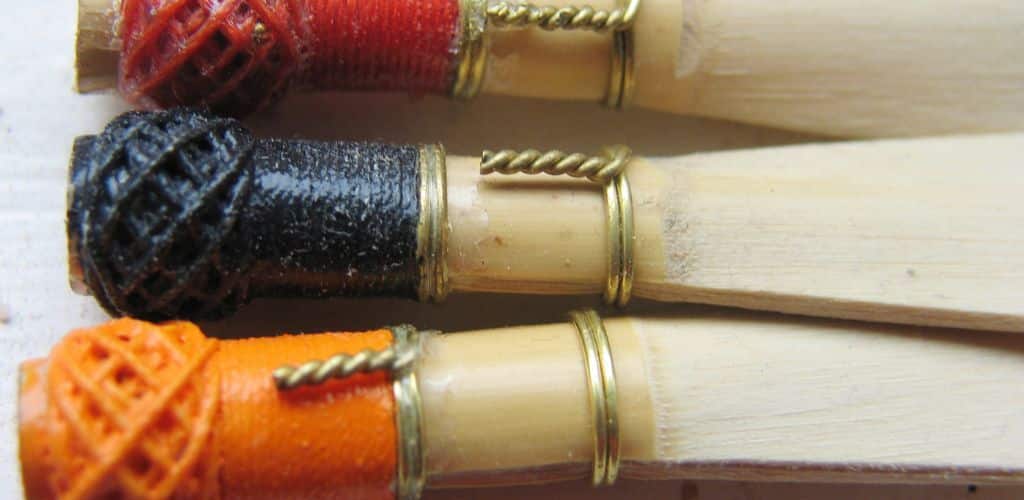
As a bassoonist, I know my reeds are the soul of my performance, and their maintenance is just as essential as practicing my scales!
I’ll guide you through tailoring your reeds for the best responsiveness and longevity, ensuring each note you play is a testament to your skill.
Making Adjustments to Reeds
When I tackle reed adjustments, tone quality, and stability are paramount. Sometimes, a tiny tweak to the wires transforms a reed’s response.

Using a small pair of pliers, I gently tighten or loosen the cables, knowing this can raise or lower the pitch, respectively, and affect the reed’s opening. If my reed is too enthusiastic and vibrant, pinching the corners adds a dollop of refinement.
The finished reeds were carefully inspected to ensure they met the desired quality and performance standards.
Players can test their own reeds to ensure they meet their standards for sound and playability. This process involves inspecting the reed’s tip, adjusting the reed’s shape, and fine-tuning the reed’s profile to achieve the desired sound and avoid blockage.
Reed Care and Longevity
I treasure my reeds; after all, they’ve seen me through thick and thin.
To extend my reed’s life, I soak it just enough – like a moist sponge cake but not soggy. Ensuring not to overdo it, a minute or two in water prevents the fibers from getting cranky and splitting during adjustments.
Storage is another chapter in the book of reed care. After a good session, resting them in a snug reed case feels like tucking them into bed, safe from the chaos of shipping or the jumbles in my instrument bag.
Remember, a well-cared-for reed is a faithful companion on my musical journeys, and tweaking them to perfection is a craft as rewarding as the music I create.
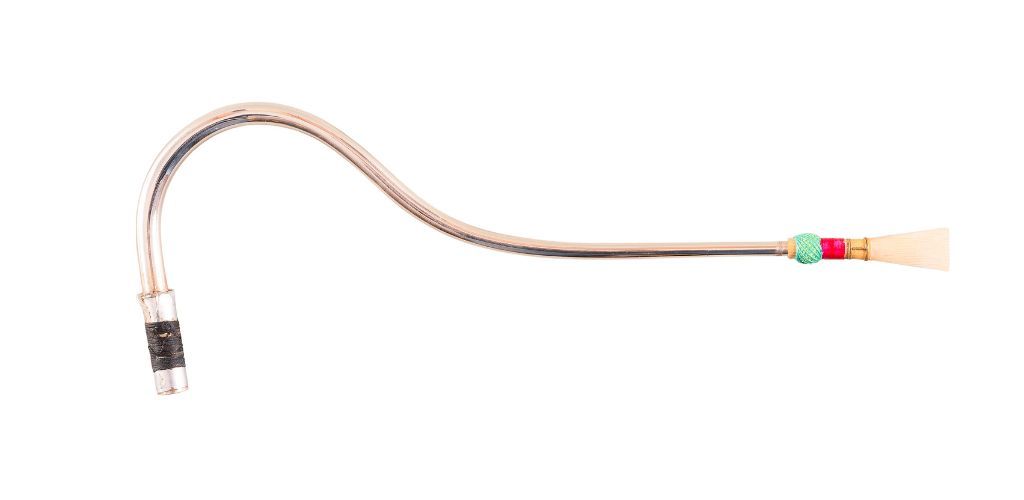

Good Bassoon Reeds:
Recap
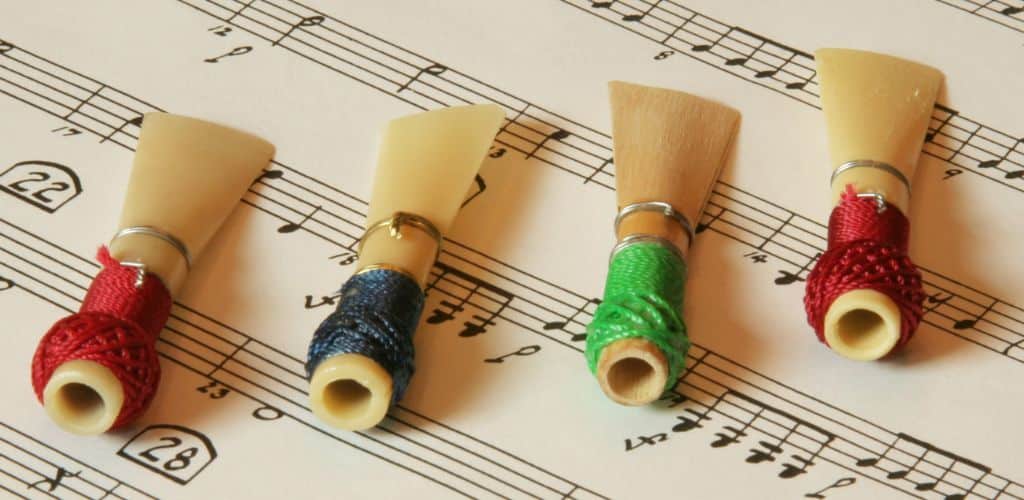
Selecting a bassoon reed that fits my style and instrument is always a delightful challenge. Here’s a nifty breakdown of what I’ve covered:
Handmade Canes: They’re like the artisanal bread of the reed world. Each one is a little masterpiece with its quirks.
Synthetic Reeds: These sleek fellas offer ease and durability, minus any drama from humidity or temperature nonsense.
Sizes and Shapes: It’s all over the map, but that diversity is precisely why I adore bassoon reeds. Finding your match is part of the fun!
Ultimately, whether it’s the charm of handmade cane reeds or the smooth sailing with plastic, choose what sings to your heart—and your bassoon! Let’s keep making splendid music with the reeds that fit us best.
Hold on! Before you go…
Discover the various factors that influence how much the bassoon costs and gain insight into the pricing of these instruments.
FAQ's
When choosing a bassoon reed, consider your playing style and look for one that produces a clear, responsive sound. Trying out different reeds can help you find the best fit for your needs.
Bassoon reed lifespan varies depending on factors like player technique and care. Typically, a single reed lasts around 20 to 30 hours of playing time before needing replacement or adjustment, but proper maintenance can extend its lifespan.
A contrabassoon typically uses a double reed, which consists of two pieces of cane bound together and forms the instrument’s vibrating element. This type of reed is essential for producing the contrabassoon’s deep, resonant tones.
Bassoon reeds generally need to be soaked in water for 2 to 5 minutes before playing. This allows the reed to absorb enough moisture to function correctly and produce the desired sound.











The segment on reed hardness and player level offers a robust introduction for newcomers, yet I find it lacks depth in exploring the nuanced relationship between reed flexibility and tone production. Also, the discussion on embouchure adjustment merits expansion, especially for those striving for refined control over diverse repertoire. Could you, Alexandra, elaborate on methodologies for personalizing reed adjustments to complement varying embouchure strengths?
The_Observer21, do you have specific techniques in reed adjustment for beginners? Struggling to find a good starting point.
ClarinetCloe, a gentle approach is key. Start by adjusting scraping only minimal material at a time, focusing on symmetry. It’s an art of patience and precision.
Just got a Legere! Can’t wait to see how it changes my sound. Exciting stuff here!
These reed recommendations… Really? Been through a dozen of those Jones and they’re hit or miss. Maybe it’s just me but Marlin Lesher’s been more consistent for my playing style. Technique’s crucial, sure, but don’t go thinking a reed’s gonna solve all your issues. Alexandra, you’re on point with trying out different brands, though.
I’ve gotta say, the deep dive into bassoon reed brands here is just what I was looking for. Jumped right on the Jones 201MH and lemme tell ya, the warmth it adds? Unreal. Always thought my technique was off but turns out, a good reed makes a world of difference. Alexandra Davidson, you nailed the recommendations. Got any insider tips on snagging these gems without breaking the bank?
BennyBlues, it’s all about those end-of-season sales and checking out local music forums. Patience pays off, literally!
ClaraSunshine, found any good spots for deals yet? Struggling musician here could use the help.